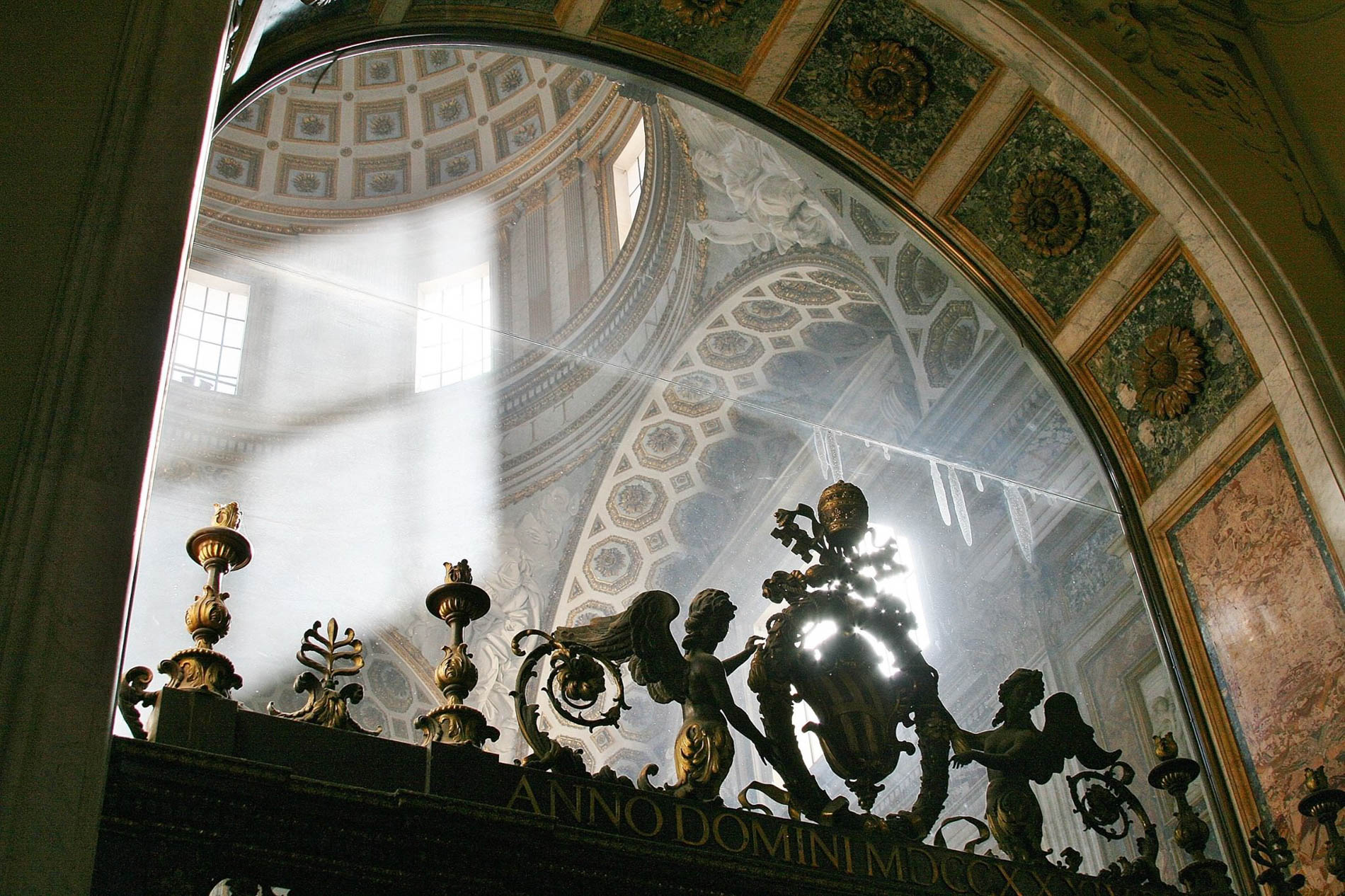St. Hildegard of Bingen
In this 14 minute podcast, Dr. Italy discusses the inspiring life of the great f...

An intense tribute to God as the fountain of eternal life, light, and living water by the Irish monk Columbanus around the AD 600.
Brethren, let us follow that vocation by which we are called from life to the fountain of life. He is the fountain, not only of living water but of eternal life. He is the fountain of light and spiritual illumination; for from him come all these things: wisdom, life and eternal light. The author of life is the fountain of life; the creator of light is the fountain of spiritual illumination. Therefore, let us seek the fountain of light and life and the living water by despising what we see, by leaving the world and by dwelling in the highest heavens. Let us seek these things, and like rational and shrewd fish may we drink the living water which wells up to eternal life.
Merciful God, good Lord, I wish that you would unite me to that fountain, that there I may drink of the living spring of the water of life with those others who thirst after you. There in that heavenly region may I ever dwell, delighted with abundant sweetness, and say: “How sweet is the fountain of living water which never fails, the water welling up to eternal life.”
O God, you are yourself that fountain ever and again to be desired, ever and again to be consumed. Lord Christ, always give us this water to be for us the source of the living water which wells up to eternal life. I ask you for your great benefits. Who does not know it? You, King of glory, know how to give great gifts, and you have promised them; there is nothing greater than you, and you bestowed yourself upon us; you gave yourself for us.
Therefore, we ask that we may know what we love, since we ask nothing other than that you give us yourself. For you are our all: our life, our light, our salvation, our food and our drink, our God. Inspire our hearts, I ask you, Jesus, with that breath of your Spirit; wound our souls with your love, so that the soul of each and every one of us may say in truth: Show me my soul’s desire, for I am wounded by your love.
These are the wounds I wish for, Lord. Blessed is the soul so wounded by love. Such a soul seeks the fountain of eternal life and drinks from it, although it continues to thirst and its thirst grows ever greater even as it drinks. Therefore, the more the soul loves, the more it desires to love, and the greater its suffering, the greater its healing. In this same way may our God and Lord Jesus Christ, the good and saving physician, wound the depths of our souls with a healing wound – the same Jesus Christ who reigns in unity with the Father and the Holy Spirit, for ever and ever. Amen.
This excerpt from an instruction by Saint Columban or Columbanus, abbot (Instr.13, De Christo fonte vitae, 2-3: Opera, Dublin 1957,118-120) on the Spirit as a fountain of life, light, and living water is used in Roman Office of Readings for Thursday of the 21st week in ordinary time being paired with Jer 3:1-4:4.
No Comments